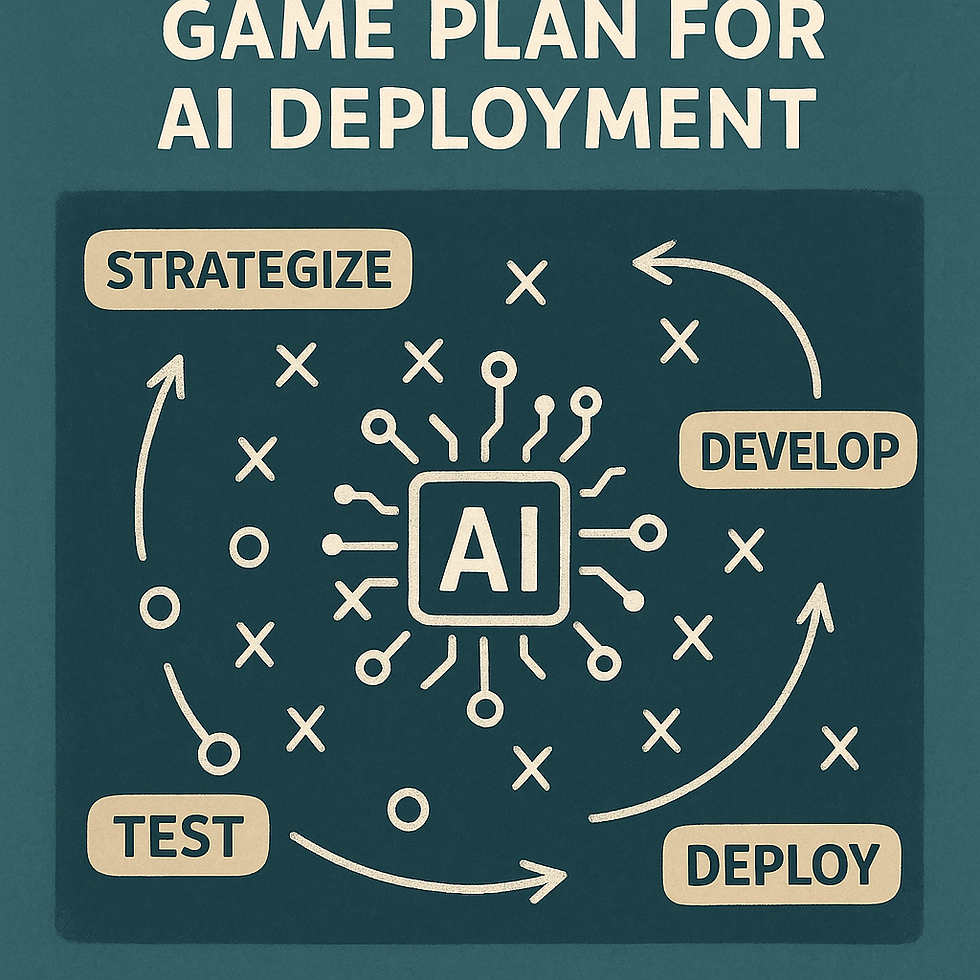Choosing the Right Large Language Model (LLM) for Law Firm Security and Productivity
- Todd Jones
- Jul 6, 2025
- 3 min read

Here’s a full blog post based on our discussion about secure LLMs for law firms:
Choosing the Right Large Language Model (LLM) for Law Firm Security and Productivity
As legal professionals seek ways to improve productivity, manage large volumes of case documents, and streamline internal processes, AI-powered tools like large language models (LLMs) are emerging as powerful assistants. But for law firms, security, confidentiality, and control are non-negotiable.
In this blog, we’ll explore:
Types of LLMs and their use cases
Legal-domain-specific AI options
A secure architecture for internal deployment
Best practices for safe, compliant AI use in legal settings
Understanding the Types of LLMs
Before choosing a model, it’s important to know the differences in architecture and design:
Description | Use Cases | |
Decoder-only (e.g., GPT, LLaMA) | Trained to predict next word/token | Text generation, chatbots |
Encoder-only (e.g., BERT, LegalBERT) | Trained to understand masked tokens | Classification, legal search |
Encoder-decoder (e.g., T5, BART) | Translates or summarizes text | Document summarization, Q&A |
For law firms, models that understand and retrieve information accurately (like BERT variants) are especially useful.
Domain-Specific Models for Legal Work
General-purpose models (like GPT-4) are incredibly versatile, but for legal tasks, models trained on legal corpora offer much better precision.
Some options include:
LegalBERT
Based on BERT
Pretrained on legal documents from Europe and the U.S.
Good for: legal text classification, document review, case law analysis
CaseLaw-BERT
Trained specifically on U.S. court decisions
Excellent for U.S.-centric litigation or precedent analysis
LexLM and LawGPT
Emerging models or internally-trained models with law-specific data
Often used in bespoke firm deployments
These models shine when used in retrieval-augmented generation (RAG) setups, where the LLM answers only from your documents.
Secure Deployment: Avoid Public APIs
Most commercial LLMs like OpenAI’s ChatGPT, Anthropic’s Claude, and Google’s Gemini operate in the cloud. These tools are great for experimentation—but risky for confidential legal data unless you have enterprise contracts with strong guarantees.
For full control and compliance, consider self-hosted, open-source models such as:
Model | Pros | Notes |
LLaMA 3 | Strong performance, open weights | Requires local infrastructure |
Mistral / Mixtral | Fast, well-performing, open license | Easy to adapt |
Phi-3 (Microsoft) | Small, efficient, good for internal tools | Good for mobile apps or lightweight usage |
Falcon | Enterprise-grade, stable | Slower community updates |
These can be run on on-premises servers or private cloud, ensuring data never leaves your environment.
Suggested Architecture for Law Firm AI Assistant
Here’s how you can securely deploy an AI assistant within your law firm:
Components:
Secure AI Assistant
Role-based access for employees
Authenticated and encrypted interactions
Document Index (Vector Database)
Stores summaries and embeddings of firm’s legal documents
Retrieval-Augmented Generation (RAG)
Uses the index to fetch relevant content before sending to the model
LLM (e.g., LegalBERT, LLaMA)
Generates responses using only the retrieved internal data
Best Practices for AI in Legal Environments
To maintain client trust and regulatory compliance:
Encrypt all data (in transit and at rest)
Enforce role-based access control
Log all interactions for audit purposes
Fine-tune the LLM on internal legal templates or past filings
Use RAG to keep responses grounded in firm-approved sources
The Future of AI in Law Firms
Legal AI isn’t about replacing lawyers—it’s about enhancing their speed and precision. When implemented correctly, LLMs can assist with:
Drafting memos and contracts
Summarizing case law
Researching legal precedents
Answering staff FAQs and policy questions
By choosing the right model and deployment strategy, law firms can gain these benefits without compromising data security or client confidentiality.
Want to build this for your firm? We can help you select and deploy a secure, private LLM-based assistant tailored for your legal team.
Let me know if you'd like this exported as a PDF, published in a CMS-friendly format, or adapted for LinkedIn or newsletter sharing.
.png)




Comments